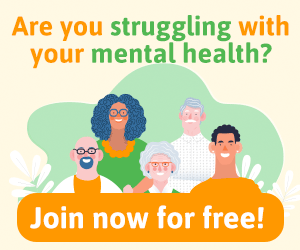Self-forgiveness is important for our mental health and overall well-being, research suggests. Sonia Vadlamani explains the seven steps you can take to learn how to forgive yourself and move forward to lead a happier, more meaningful life.
‘To err is human, but to forgive is divine’ as the age-old saying goes. Indeed, it’s a fact of life that we all make mistakes. However, learning from these errors, letting go of the negative emotions attached to them – such as guilt, resentment, shame – and moving on by practising self-forgiveness is crucial for our well-being and happiness.
Forgiveness, or the deliberate choice to let go of anger, regret or revenge towards someone who may have wronged you, can be a helpful healing tool. However, often people don’t realize that forgiving themselves is a viable choice that they can put in practice. In addition, while forgiving others for their wrongdoings can come easily to us, we usually find it much harder to condone our own mistakes from the past and practise self-forgiveness.
Contrary to what you may assume, self-forgiveness doesn’t mean that you’re off the hook for your past bad behavior. It doesn’t even mean that the action you regret needs to be tolerated further or forgotten. Instead, forgiving yourself entails accepting and taking accountability for your misdirected actions, thoughts or feelings. Indeed, self-forgiveness involves knowing that you can’t change your past behaviour/s, but are willing to come to terms with the wrongful act and consequently, let go of the past.
Why self-forgiveness is essential
Self-forgiveness does not always come easy, as it requires us to acknowledge and accept some uncomfortable facts or feelings. However, it is essential to know how to forgive yourself, as dwelling in negative feelings like guilt, shame, frustration and anger can take a toll on our mental health and physical well-being. Dwelling in these feelings can lead to self-hatred, impacting our well-being and happiness levels.
In fact, research points out that the ability to forgive yourself with greater ease is directly linked to higher overall well-being levels. Additionally, researchers Michael Wohl et al suggest that higher levels of self-forgiveness can also serve as a protective shield from conditions like depression, post-traumatic stress disorder and anxiety.

Self-forgiveness is linked to higher levels of happiness
Indeed, self-forgiveness entails some degree of cognitive reframing of one’s views about themselves. Researcher Margaret R Holmgren suggests that the ability to forgive ourselves allows us to recognize our intrinsic worth and its independence from our wrongdoing. This means that over time and with consistent practice, we can forgive ourselves with greater ease and lead a stress-free, productive and meaningful life.
How to forgive yourself: 7 steps
Forgiveness doesn’t just benefit others you’ve wronged or were unfair to, but is beneficial for you as well. In fact, self-forgiveness allows you to develop deeper perception regarding your actions and thoughts. Learning how to forgive yourself enables you to move forward with a better understanding of how you react in different situations, strengthening your resolve to prevent such behavior in the future.
Indeed, forgiving yourself constitutes an important part of correcting your wrongful actions or behavior for the future course. However, research points out that self-forgiveness doesn’t happen unintentionally, but is a conscious effort that relies on a carefully devised, stepwise approach.
Here are seven steps suggested to help you exercise self-forgiveness, including undertaking suitable actions for making necessary changes in your behavior.
1. Define what forgiveness means to you
Self-forgiveness holds different meanings for different people, even though the end goal remains the same, which is to come to terms with our actions or feelings from the past, instead of wallowing in regret, guilt or shame. Our definition of self-forgiveness usually stems from our personal beliefs, value systems, family, religious ideology, etc.
“It is essential to know how to forgive yourself, as dwelling in negative feelings like guilt, shame, frustration and anger can take a toll on our mental health and physical well-being.”
For example, for me, I’ve understood over the years that self-forgiveness involves coming clean and apologizing sincerely to the person I may have hurt, no matter how difficult or trivial it may seem at the time. Understand what forgiveness means to you and proceed to define it in a clear manner, so that you can devise the approach that aligns best with your thought process and values.
2. Recognize your feelings
This step requires you to sort through the various emotions you experience when you recollect a wrongful action committed in the past and acknowledge the feelings you identify with the most at the moment. Set aside some time to experience each feeling without any judgment, as you recount your wrongful action or unfair behavior that’s bothering your conscience.
Resist the temptation to deny acknowledgement of your feelings due to shame or guilt, as ignoring these emotions can cause further inner turmoil. On the other hand, acknowledging these feelings will help you gain a deeper insight, allowing you to forgive yourself and possibly prevent such situations from arising in the future.
3. Take responsibility for your actions
This may prove to be the most challenging step, especially because accepting the fact that you made a mistake or acted unfairly isn’t always an easy feat. However, it can’t be denied that acknowledging your mistakes and assuming responsibility for the same is the steadiest way to forgive yourself for your unjust behavior in the past.
Taking the time to acknowledge your missteps also allows you to gain an in-depth perspective about your reaction to various stimuli and vulnerabilities. This will enable you to move forward in life and may help improve your composure during unforeseen situations in the future.
4. Apologize with sincerity
A sincere, heartfelt apology makes a significant impact when it comes to self-forgiveness or forgiving others, according to a 2021 study from Japan's Kobe Gakuin University. Researchers there reviewed the effect of different types of apologies on various conflict resolution situations. Apologizing for your actions conveys your regret regarding the pain you may have inflicted on someone. It shows that you reflected on your mistake, acknowledge the emotions of someone who was wronged, and are willing to act in a different way in the future to avoid a similar mistake.

Apologizing to others help with your own self-forgiveness shutterstock/fizkes
5. Draw focus onto the lessons learnt
Forgiving yourself will truly be possible when you’re ready to learn from your mistakes and wrongful acts in the past. Instead of constantly criticizing or condemning yourself, strive to understand what causes the behaviors which you may later regret. Learn from your vulnerability, fears and failures by reflecting on questions like, “Why does this situation lead me to act in a certain manner?”, “How can I deal with this situation more gracefully?” or “How do I rectify my default reaction should this scenario arise again?”
6. Make meaningful amends
Once you’ve acknowledged your mistakes and apologized, consider what else you can do to resolve the mistake, and devise an action plan to achieve it. For instance, when I realized that sometimes my witty quips end up offending or hurting people around me, I decided to simply be more mindful about the way I put my thoughts into words. After all, there isn’t a way to take back the words we’ve already uttered, but it’s possible to prevent the hurt and misunderstandings if we communicate respectfully and with kindness in the first place.
“Higher levels of self-forgiveness can also serve as a protective shield from conditions like depression, post-traumatic stress disorder, and anxiety.”
Bringing about meaningful changes in your behavior and actions can help you shift your focus from mistakes of the past to working towards a more effective solution for the future.
7. Be compassionate
Have you ever noticed that we tend to be harder on ourselves, and find it easier to forgive others than ourselves for the wrongs of the past? Carole Pertofsky, Director Emerita for Wellness and Health Promotion at Stanford University, implies that we are prone to self-criticism and tend to judge ourselves harshly while mistaking it for self-discipline, which makes it difficult for us to exercise self-compassion.
“Self-forgiveness is treating yourself as you would treat your own friend,” Pertofsky told Scope, the Stanford Medicine magazine. “It is a skill that involves mind, body, heart and action,” she continues. Indeed, we can learn to treat ourselves with compassion by embracing our imperfections and work towards living a life without regret.
Takeaway: self-forgiveness
Self-forgiveness may not come easily to most of us, as it needs us to acknowledge uncomfortable feelings, and serves to remind us of our flawed nature. However, coming to terms with your imperfections and forgiving yourself for any wrongdoing can positively impact several areas of your life.
Learning how to forgive yourself with greater ease is an essential skill that requires some introspection and practice. Implementing these steps for self-forgiveness in practice will equip you to act more responsibly in the future, in addition to teaching you to exercise mindfulness and inculcate gratitude in everyday life. •
happiness.com | The fine art of being: learn, practise, share
Are you a happiness.com member?
Join free now and:
■ enjoy our happiness magazine
■ share and support in our happiness forum
■ Develop with free online Academy classes
Communication skills | Trust | Empathy
Written by Sonia Vadlamani
 Fitness and healthy food blogger, food photographer and stylist, travel-addict and future self journaler. Sonia loves to write and has resolved to dedicate her life to revealing how easy and important it is to be happier, stronger and fitter each day. Follow her daily pursuits at FitFoodieDiary or on Instagram.
Fitness and healthy food blogger, food photographer and stylist, travel-addict and future self journaler. Sonia loves to write and has resolved to dedicate her life to revealing how easy and important it is to be happier, stronger and fitter each day. Follow her daily pursuits at FitFoodieDiary or on Instagram.



Join the conversation
You are posting as a guest. If you have an account, sign in now to post with your account.
There are no comments to display.